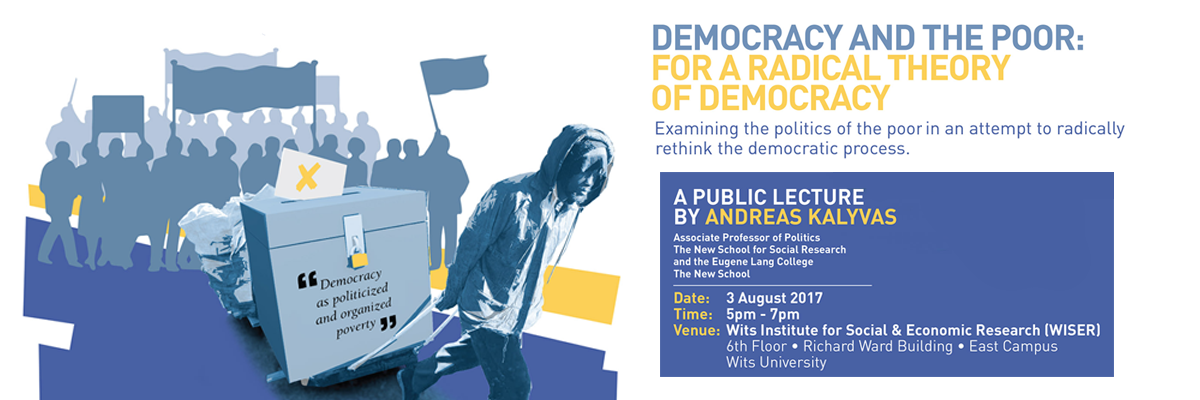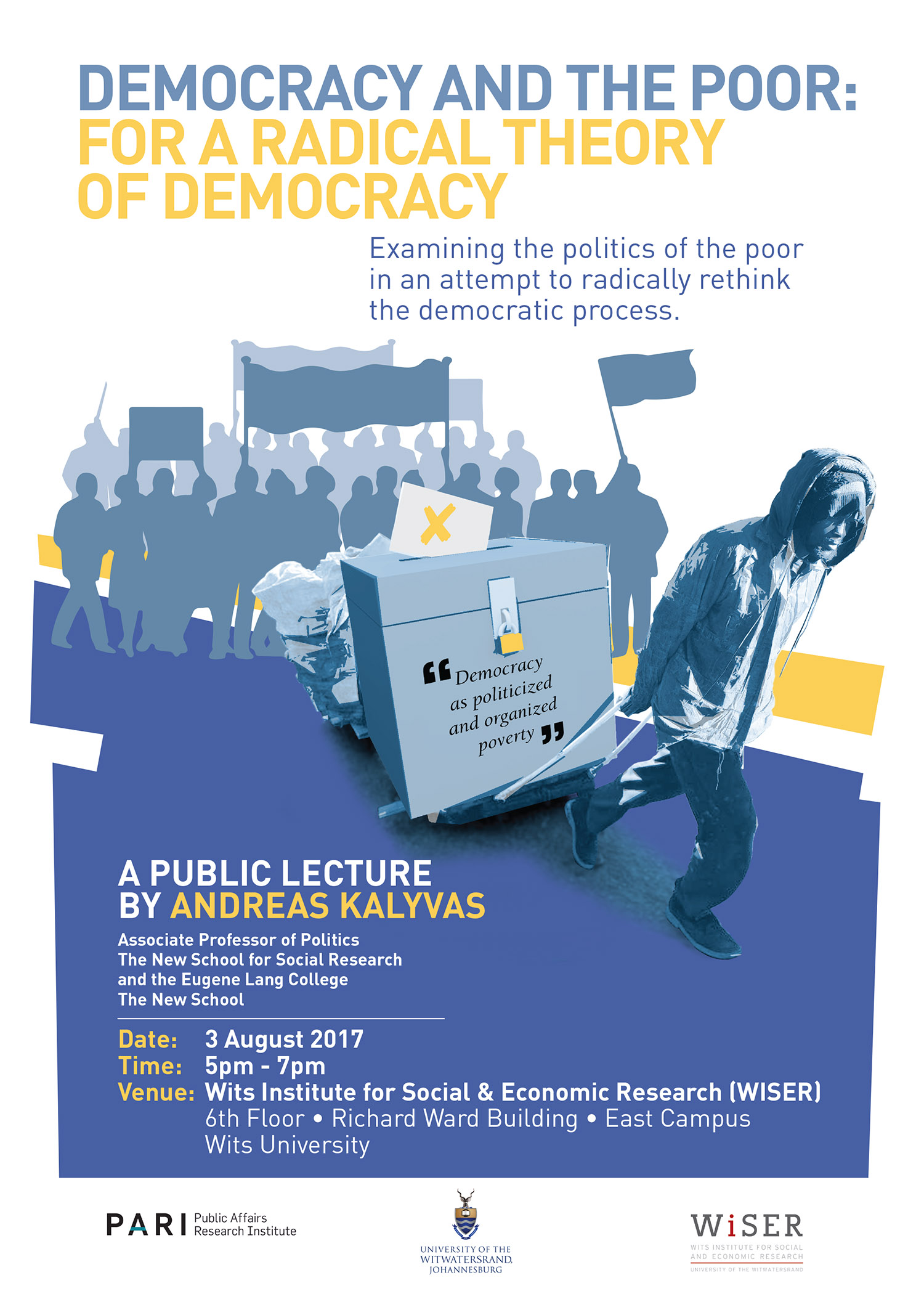
A public lecture by PARI visiting professor, Andreas Kalyvas
3 August, 5-7pm
Wiser Seminar Room, 6th floor, Richard Ward Building, Wits University
[nectar_dropcap color=”#27ccc0″]T[/nectar_dropcap]he lecture examines the hypothesis of democracy as the politics of the poor, in an attempt to radically rethink the democratic experience and to capture its political singularity and defining traits. To do so, this hypothesis, which claims an essential relation between democracy and the poor, must be treated in three different but related registers: that of the question of the subject of democracy, the powers it possesses, and its normative principle and emancipatory aspirations. The question of sovereignty itself acquires a special significance and meaning to the degree that it is transversal to a plurality of democratic forms, such as plebeian sovereignty, proletarian democracy, or communal assemblies. For this reason, the institutional and cultural innovations associated with the poor and their political struggles are central for understanding the democratic project and its radical content. Finally, the hypothesis of the democracy of the poor, namely, democracy as the project of politicized and organized poverty, is brought to bear on the present in order to reflect on the generalized crisis that the liberal model of rule is currently going through.
Andreas Kalyvas is Associate Professor of Politics at the New School for Social Research and the Eugene Lang College, The New School.


